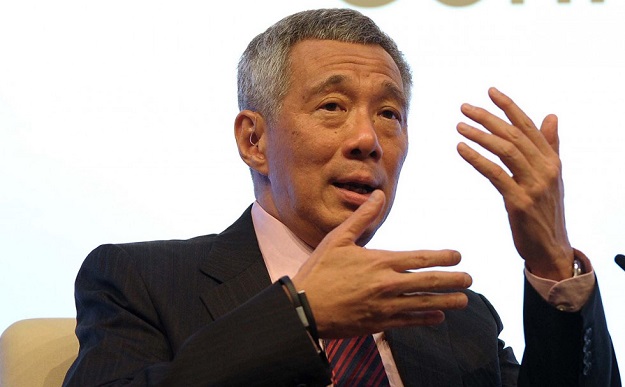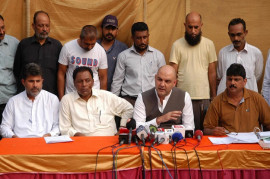
SINGAPORE:
Singapore Prime Minister Lee Hsien Loong on Sunday defended his immigration policies and unveiled a set of economic goodies for families ahead of general elections expected to be held in September.
"Soon, I will be calling elections to ask for your mandate to take Singapore into this next phase of our nation-building," Lee said in an annual policy speech after the city-state celebrated 50 years of independence from Malaysia.
"This election will be critical. You will be deciding who's governing Singapore for the next five years, but much more than that... you will be setting the direction for Singapore for the next fifty years, you will be determining the future for Singapore," he added.
Lee, 63, addressed one of the most sensitive issues in Singapore -- an influx of foreign workers and immigrants which has seen the population surge from 4.17 million in 2004 when he came to power to 5.47 million last year.
The government slowed the intake after the ruling People's Action Party (PAP) -- which has been in power for more than 50 years -- saw its share of the vote plunge to 60 percent in the 2011 general election.
It retained 80 of the 87 seats in parliament thanks to a block-voting system.
"On foreigners and immigration, there are no easy choices. Every option has a cost, has a downside," Lee said.
"If we close our door to foreign workers, our economy will tank. Companies won't have enough workers. Some will close down and our own people working in these companies will lose their jobs," Lee said.
Read: Singapore turns 50 with huge parade, tribute to Lee Kuan Yew
"On the other hand, if we let in too many foreign workers, our society will come undone. Singaporeans will be crowded out, workplaces will feel foreign, our identity will be diluted and we just can't digest huge numbers," he added.
"Whichever option we choose, it will involve some pain. But I believe that I am doing what Singapore needs and what best safeguards your interests."
Lee did not give details on his future immigration policy.
Key election issue
The influx of skilled and educated migrants remains a source of tension in the compact city-state, with middle-class Singaporeans complaining that the newcomers are competing with them for jobs and housing and straining public services like mass transport.
The government has invested billions of dollars in building new public housing flats and metro lines since the last elections.
Observers have predicted that Lee will call snap polls for September 12, the first vote since the country's independence leader Lee Kuan Yew, the prime minister's father, died in March.
Lee's death triggered an outpouring of grief and analysts say the PAP could benefit at the polls from a patriotic national mood that culminated in this month's 50th independence day celebrations.
Read: Dual citizens, immigrants could lose Canadian citizenship under new law
In his speech, the prime minister urged Singaporeans to give him and his government a strong mandate at the election "if you are proud of what we have achieved together (and) if you support what we want to do ahead".
He unveiled a set of measures for Singaporean employees and families. Government grants for public housing were increased, while employers will be mandated to offer workers re-employment contracts until the age of 67 instead of 65 currently. The normal retirement age remains at 62.
Lee also boosted the city-state's cash bonus schemes for parents of newborn babies and increased government-subsidised paternity leave to two weeks from one week currently.
Measures to boost Singapore's low birth rate through cash incentives for parents were first implemented in 2001 and have since been regularly enhanced. The city-state's birth rate stood at 1.25 in 2014, well below the replacement rate of 2.1 needed to maintain population levels.




















































COMMENTS
Comments are moderated and generally will be posted if they are on-topic and not abusive.
For more information, please see our Comments FAQ